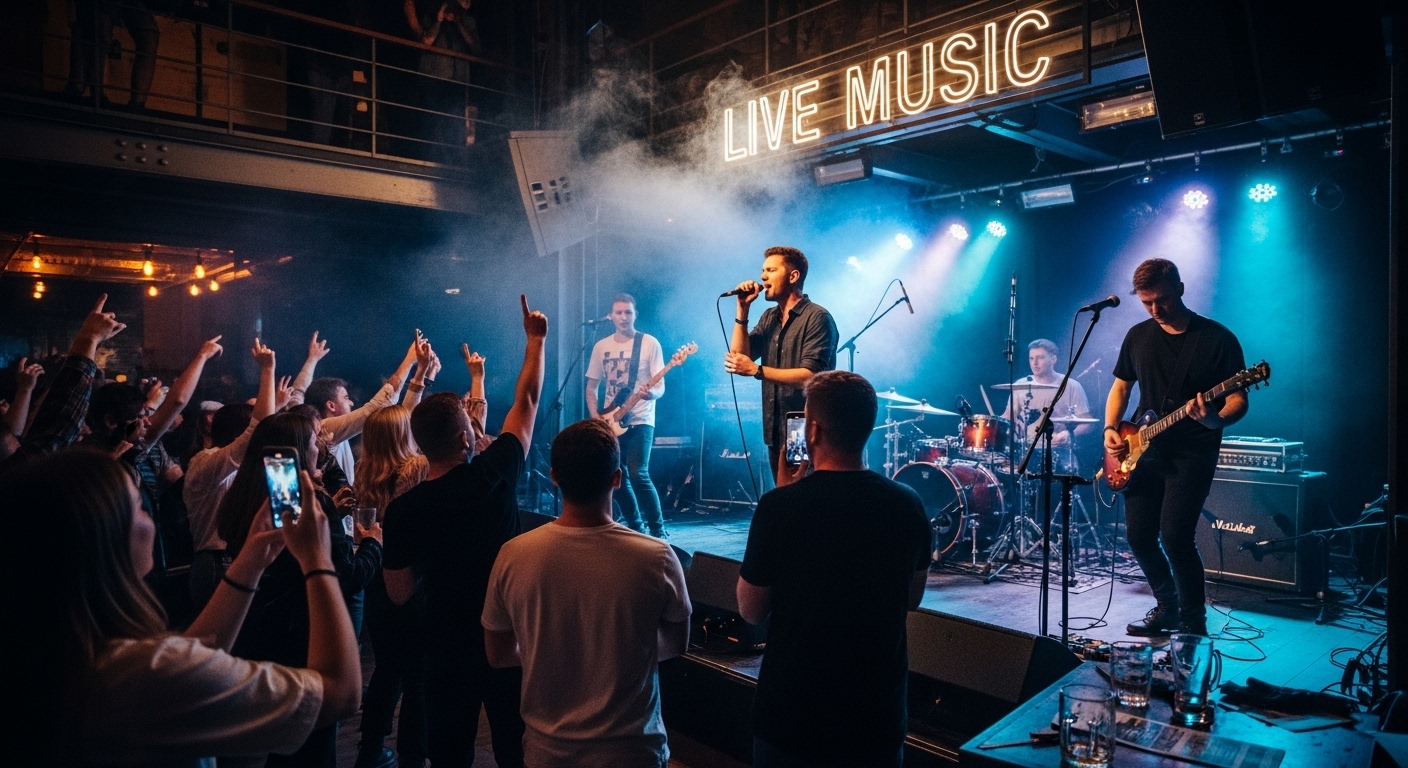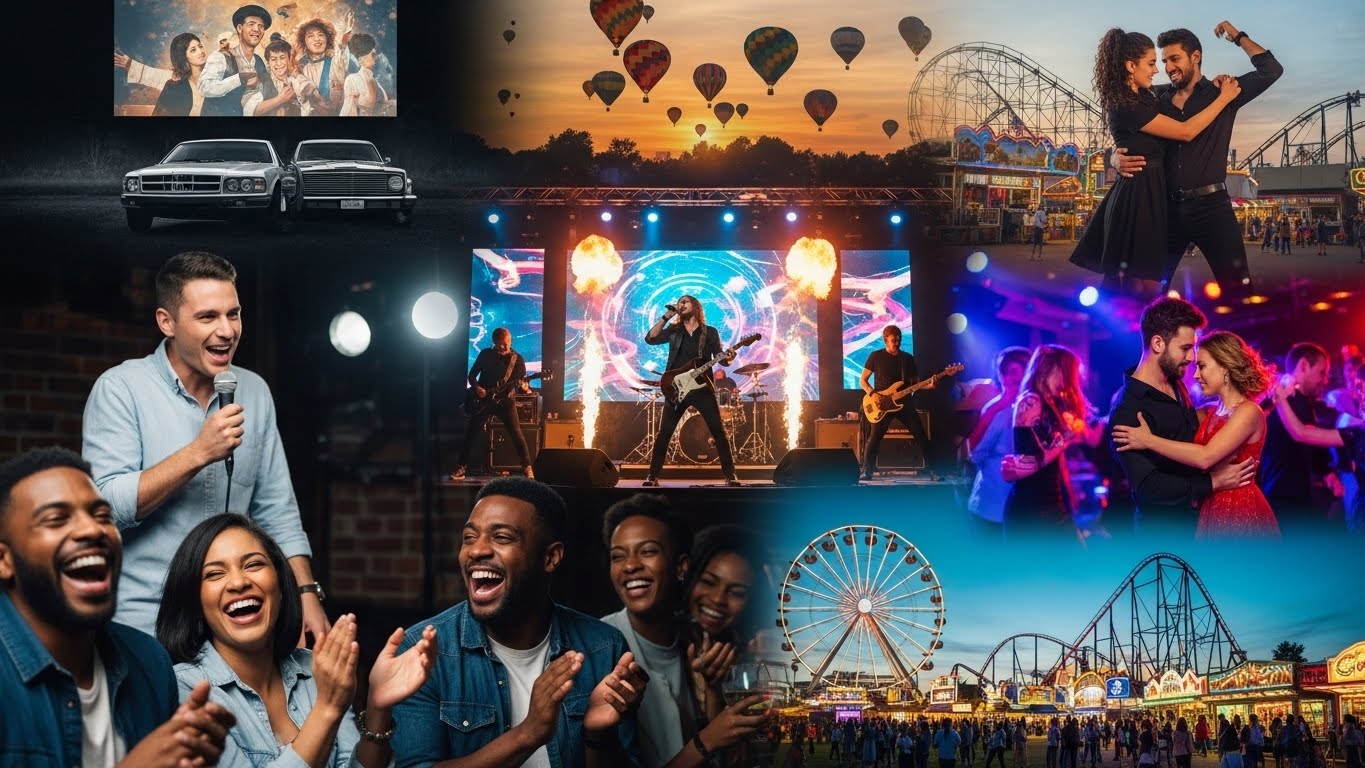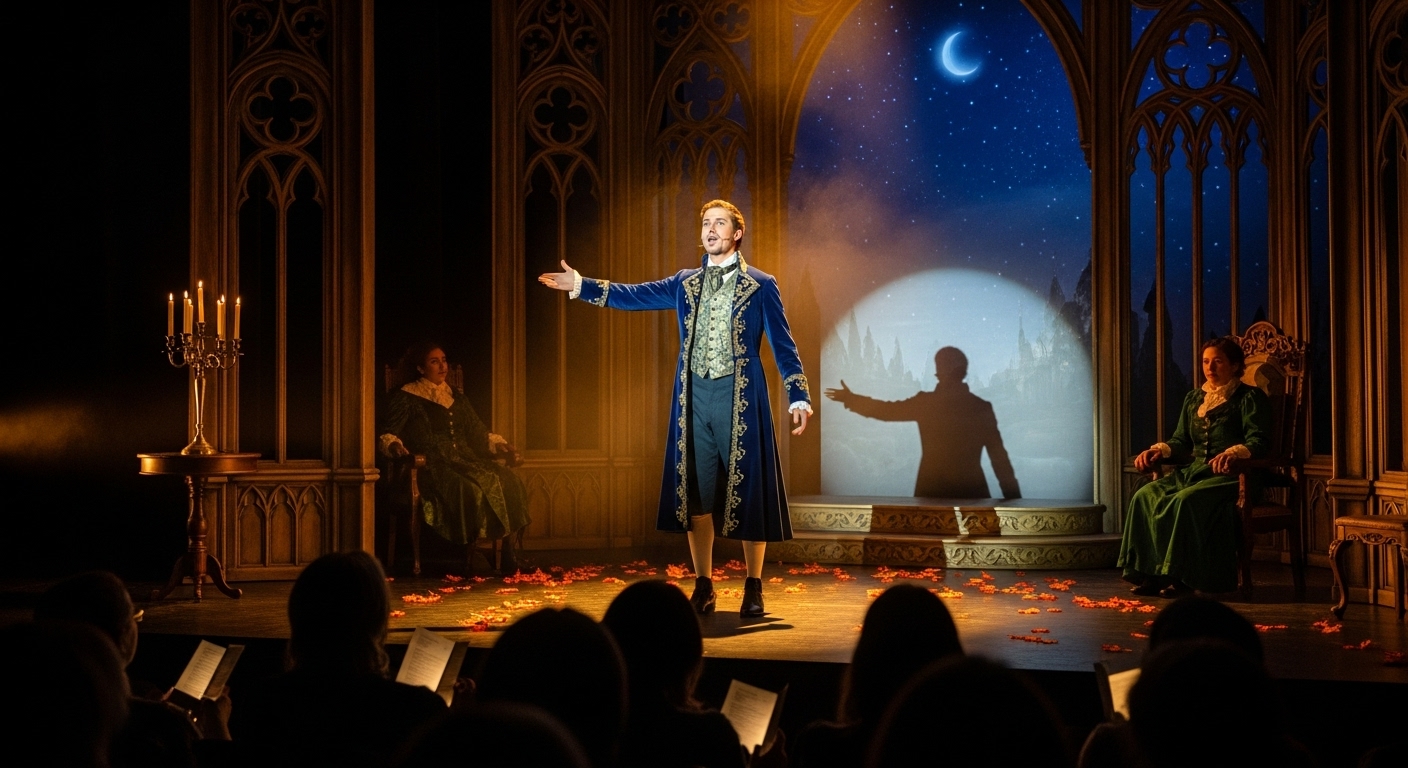Entertainment has always been an integral part of human culture, providing a vital escape, stimulating creativity, and fostering social connections. From ancient storytelling traditions to the immersive digital experiences of today, entertainment continues to evolve, reflecting societal changes, technological advancements, and shifting cultural norms. In this blog post, we’ll dive into how entertainment is shaping our modern lives and what it means for the future of fun and leisure.
The Digital Revolution: A New Era of Entertainment
Gone are the days when entertainment was limited to a movie night at the theater or gathering around a radio for an evening of music. Today, digital platforms dominate the entertainment landscape. Streaming services like Netflix, Disney+, and Spotify have changed how we consume media. The accessibility and variety of on-demand content allow people to experience entertainment on their own terms, at any time, and from any device.
This shift toward digital platforms is not just about convenience but also about personalization. Algorithms tailor recommendations based on user preferences, creating a more individualized entertainment experience. From podcasts to web series, gaming to virtual concerts, the digital revolution has made it easier for people to explore new genres and formats without leaving the comfort of their homes.
The Rise of Interactive Entertainment: Gaming and Beyond
One of the most significant shifts in the entertainment industry has been the rise of interactive experiences, especially through video games. With advancements in technology, the gaming world has exploded, attracting people of all ages and backgrounds. Whether it’s the immersive world-building in games like Minecraft or the intricate storytelling found in The Last of Us, gaming has become a platform for rich narratives and innovative experiences.
Virtual reality (VR) and augmented reality (AR) are pushing the boundaries of what entertainment can be, offering fully immersive experiences that make players feel like they are truly part of the action. This shift towards interactive entertainment is blurring the lines between the real world and digital realms, providing endless opportunities for exploration, education, and escape.
Social Media and the Evolution of Content Creation
Social media platforms like Instagram, YouTube, TikTok, and Twitch have turned everyday people into content creators, allowing anyone to share their stories and talents with the world. In the past, entertainment was largely controlled by production studios and big-name celebrities. Today, anyone with a camera and an internet connection can create viral content and build a following.
This democratization of entertainment has had a profound effect on the industry. The rise of influencers and user-generated content has not only changed how we consume entertainment but has also created new avenues for brands to connect with their audiences. Moreover, social media platforms allow for immediate feedback and interaction, making the relationship between creators and audiences more dynamic than ever before.
The Impact of Streaming and Binge-Watching Culture
The advent of streaming services has given rise to a phenomenon that has become synonymous with modern entertainment: binge-watching. No longer do viewers have to wait week by week for the next episode of their favorite show. With platforms like Netflix, Amazon Prime, and Hulu, entire seasons are made available at once, encouraging viewers to watch as much as they can in one sitting.
While this culture has changed the way we engage with television and film, it’s also shaped how these forms of entertainment are created. Showrunners and writers now craft content with binge-watching in mind, creating cliffhangers, plot twists, and episodic structures that keep viewers hooked. This shift has also led to a growing demand for original, high-quality content, as streaming platforms compete to attract and retain subscribers.
Entertainment and Mental Health: A Double-Edged Sword
While entertainment has the power to bring joy, relaxation, and a sense of community, it’s important to acknowledge its potential downsides. The constant stream of content, social media pressures, and the rise of addictive gaming habits can contribute to mental health challenges, including anxiety, depression, and feelings of isolation.
However, when consumed mindfully, entertainment can also serve as a source of solace and inspiration. Many individuals turn to music, movies, or podcasts for comfort during difficult times. In a world where mental health has become a growing concern, the entertainment industry has the opportunity to play a crucial role in promoting well-being through uplifting content, educational resources, and even campaigns that raise awareness.
Looking Ahead: The Future of Entertainment
As we look to the future, it’s clear that entertainment will continue to evolve in exciting and unpredictable ways. Technologies like AI and machine learning are likely to play a larger role in content creation, offering new possibilities for hyper-personalized experiences. Virtual and augmented reality will become even more mainstream, providing entirely new avenues for immersive storytelling.
Moreover, the way we interact with entertainment will become more social and collaborative. Virtual events, online gaming communities, and live-streamed concerts are already breaking down geographical barriers, allowing people to connect with others around the world in real-time.
Ultimately, the future of entertainment lies in its ability to adapt to an ever-changing world. As technology advances and our cultural norms shift, the way we seek out fun, connection, and inspiration will continue to transform, but the core desire to be entertained, enlightened, and engaged will remain unchanged.
Conclusion: Entertainment as a Reflection of Society
Entertainment is not just about having fun; it’s a reflection of our society’s values, interests, and technological innovations. As we continue to innovate and adapt, the entertainment industry will remain a driving force in shaping how we connect, escape, and express ourselves.
From the days of storytelling around a campfire to the virtual reality experiences of tomorrow, one thing is certain: entertainment will always evolve, keeping pace with the ever-changing world around it. So, the next time you settle down to watch your favorite show, play a game, or scroll through social media, remember that you’re engaging with something much bigger—a reflection of our culture, creativity, and future possibilities.



